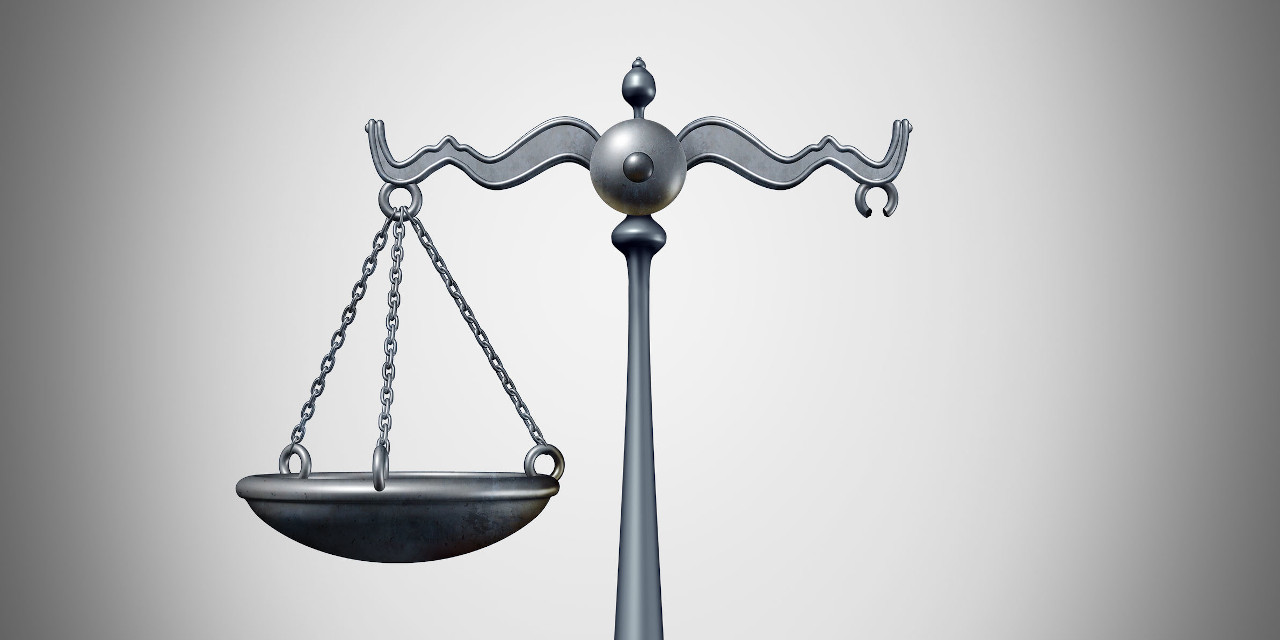More and more we hear of outrageous lawsuits that reward no one more than the attorneys who concoct a class action cause and find “named plaintiffs” to create the pretense of legitimacy. Most recently, the skilled nursing care industry has been beset by the prospect of litigation. Not surprisingly, the industry trade associations maneuvered in an attempt to get immunity. But immunity is not the answer.
Avarice vs. Justice
This is not a new phenomenon. In our local area, there is a law firm that advertises on television, “Call us to find out what your case is really worth.” Encountering a situation that requires legal rectification should not be the same as winning the lottery. And advertising that implies enrichment detracts from the notion that the law should lead to justice.
Here’s an example. I have an iPhone 6+ that I still use while I wait for the 5G revolution to give me a reason to upgrade. Recently, though, I got a notice that, if I jump through a bunch of hoops, I might be able to get $25. Yes, the prospect of $25 is the result of a lawsuit.
The machinations needed to make the claim are not worth the $25 prize. The accusation is that Apple made a change that resulted in apps running slower [Apple Inc. Device Performance Litigation, Case No. 18-MD-2827-EJD]. We never noticed the slowdown. We’re not aggrieved. We won’t be claiming.
The notice reveals the scandalous terms, which are not dissimilar from those that have enriched trial attorneys in other cases. “Under the settlement, Apple will pay a minimum of $310,000,000 and a maximum of $500,000,000 depending on the number of claims submitted.” Now that’s a lot of money.
The notice also shares with us, “Apple denies all allegations and is entering into this settlement to avoid burdensome and costly litigation.” That sounds like a hold-up. In the standard melodrama, the innocent robbery victim turns over his wallet to avoid being shot. In this case, there is no courageous town marshal to ride in to save the day and restore justice. The system itself is broken. We need to fix it.
A Broken System
How did it become so broken? Investigative journalists are taught to follow the money. In this case, the money leads to the attorneys. The Court is asked to approve, “Class Counsel’s request for Attorneys’ Fees of up to 30% of the $310,000,000 Floor, plus expenses of up to $2 million; and (3) Named Plaintiff Service Awards of up to $3,500 each (for those Named Plaintiffs who were deposed) and $1,500 (for all other Named Plaintiffs).”
The attorneys will be paid $93 Million, net of expenses, while each of the supposedly aggrieved iPhone users will receive $25, and the “Named Plaintiffs” will get a token payment for their victimhood.
What if Apple had resisted? Clearly, the Apple executives have made a business judgment that they would have to pay more than these hundreds of millions of dollars to find justice in an increasingly expensive judicial system. The plaintiffs’ attorneys have nothing to lose beyond their time and out-of-pocket expenses, usually mostly for “experts.” This cries out for reform. We need to move from a system in which the incentives of greed outweigh the restitution of justice. We need to apply a moral compass to our justice system.
Restoring Justice
The question then is how to restore justice. Let’s start with the concept of responsibility that lies at the heart of all notions of justice. It’s grounded in the simple premises of good faith and fair dealing. Those premises would suggest that plaintiffs who bring a weakly grounded lawsuit, with weakness determined by the failure to prevail, should take responsibility for the consternation and disruption they cause. To the point, unsuccessful plaintiffs should pay the full defense costs of those they accuse.
Beyond that simple change, a practice that is followed in some other countries but not in the United States, attorneys’ fees should be capped at a reasonable rate. Legal representation should not be incentivized as though it were commissioned sales. Attorneys should serve the cause of justice and not merely be rewarded for winning. Contingent fees turn lawyering into a sport in which the winner takes all and the loser leaves the field relatively unscathed. But justice is not a sport.
Moreover, caregivers for the frail and vulnerable should have the same presumption of innocence for civil litigation as that which shields those criminally accused. Serving those who are fragile should be honored, not fraught with apprehension. Senior living should never be viewed as fertile ground for those seeking to profit from litigation. We need to restore fair inquiry to allegations of irresponsibility.
Senior Living Can Lead
These reforms can be crucial for senior living and, especially, for skilled nursing facilities and hospitals that care for the most fragile as they approach life’s end. The answer is not to absolve senior living of responsibility through immunity. That approach penalizes responsible providers by protecting those who are unscrupulous.
Senior living, though, can take the lead in advocating for judicial reform to restore rationality and to eliminate “hold-ups” from the system. Serving the elderly is a noble calling that ought not to be penalized unjustly. The answer isn’t immunity; the answer is a responsible system that takes the sport out of justice and restores the covenant of good faith and fair dealing.





